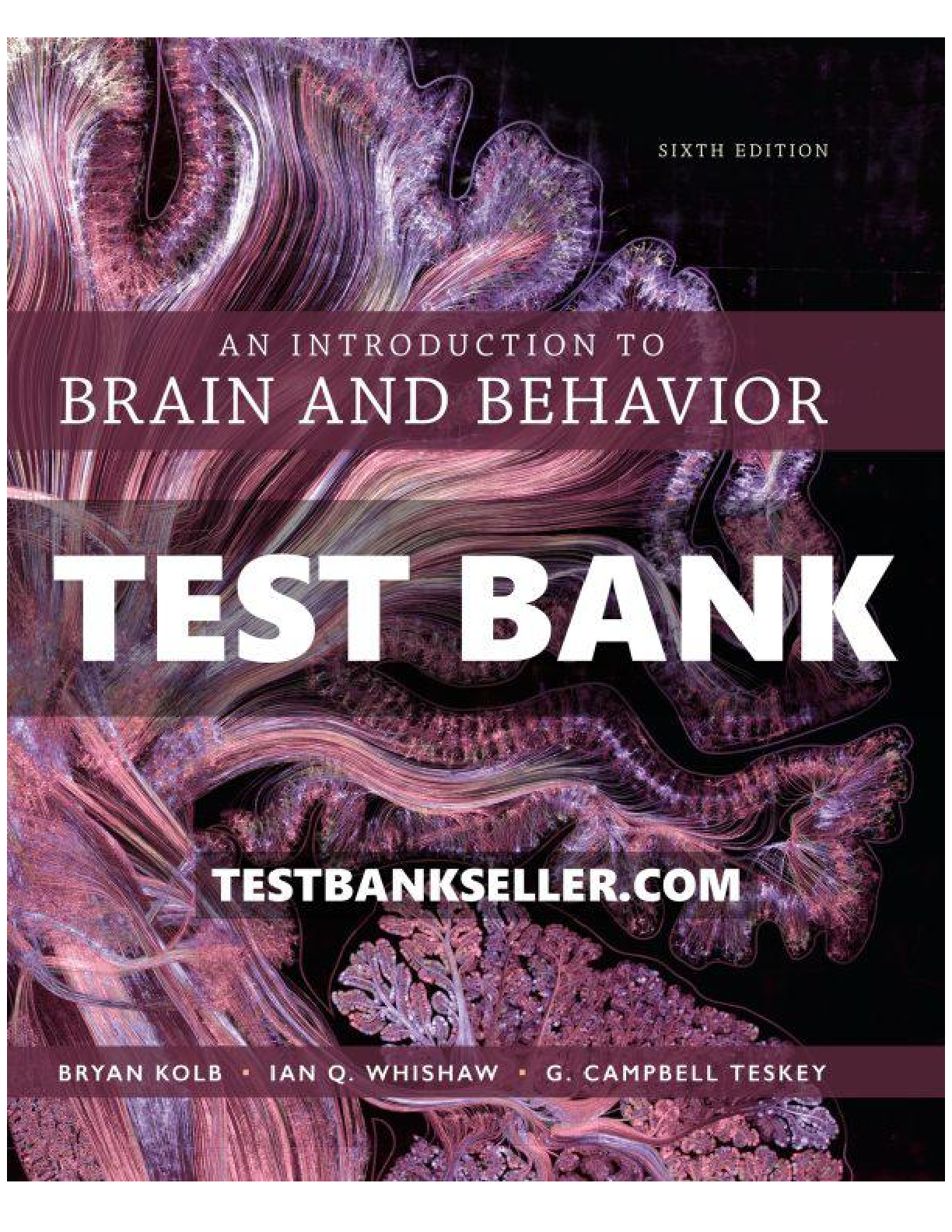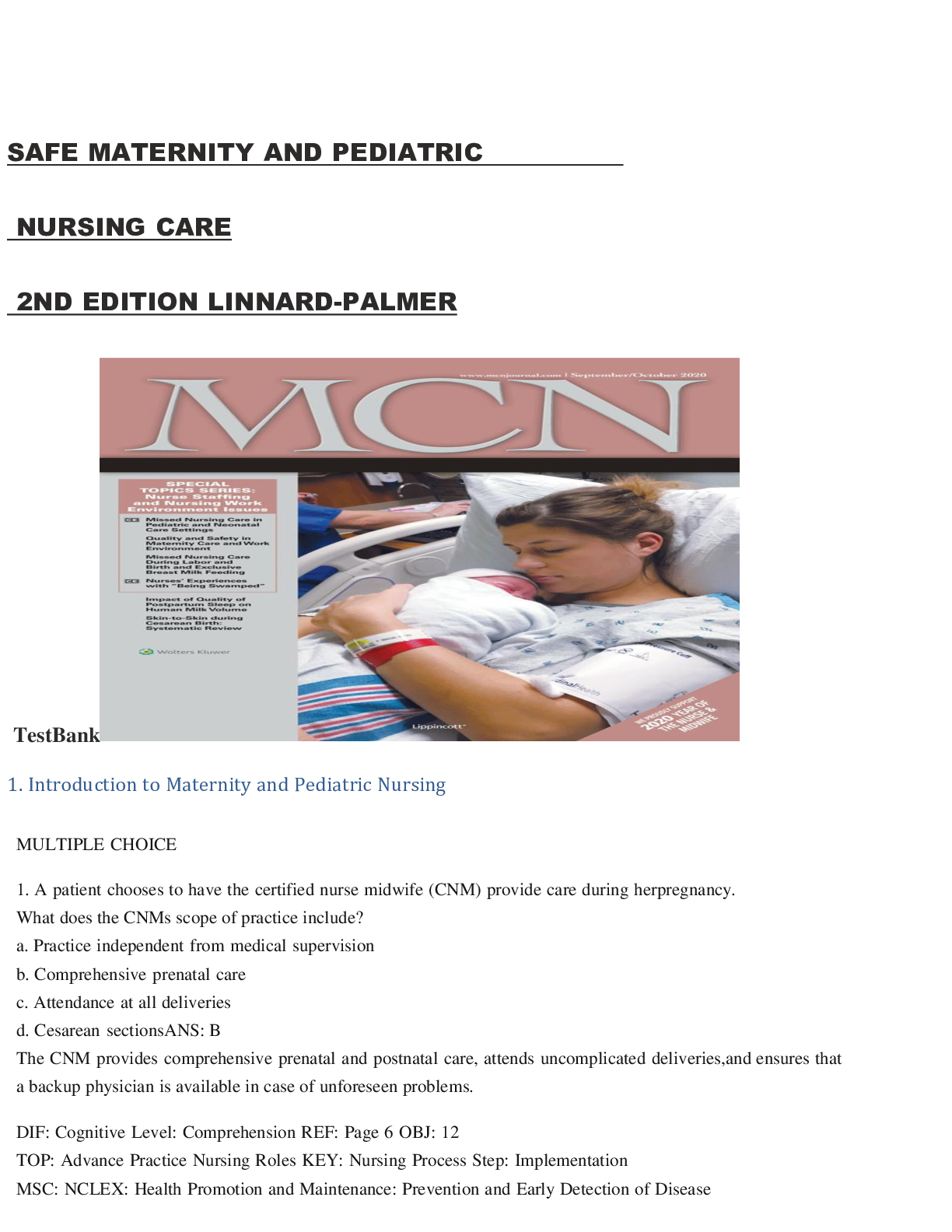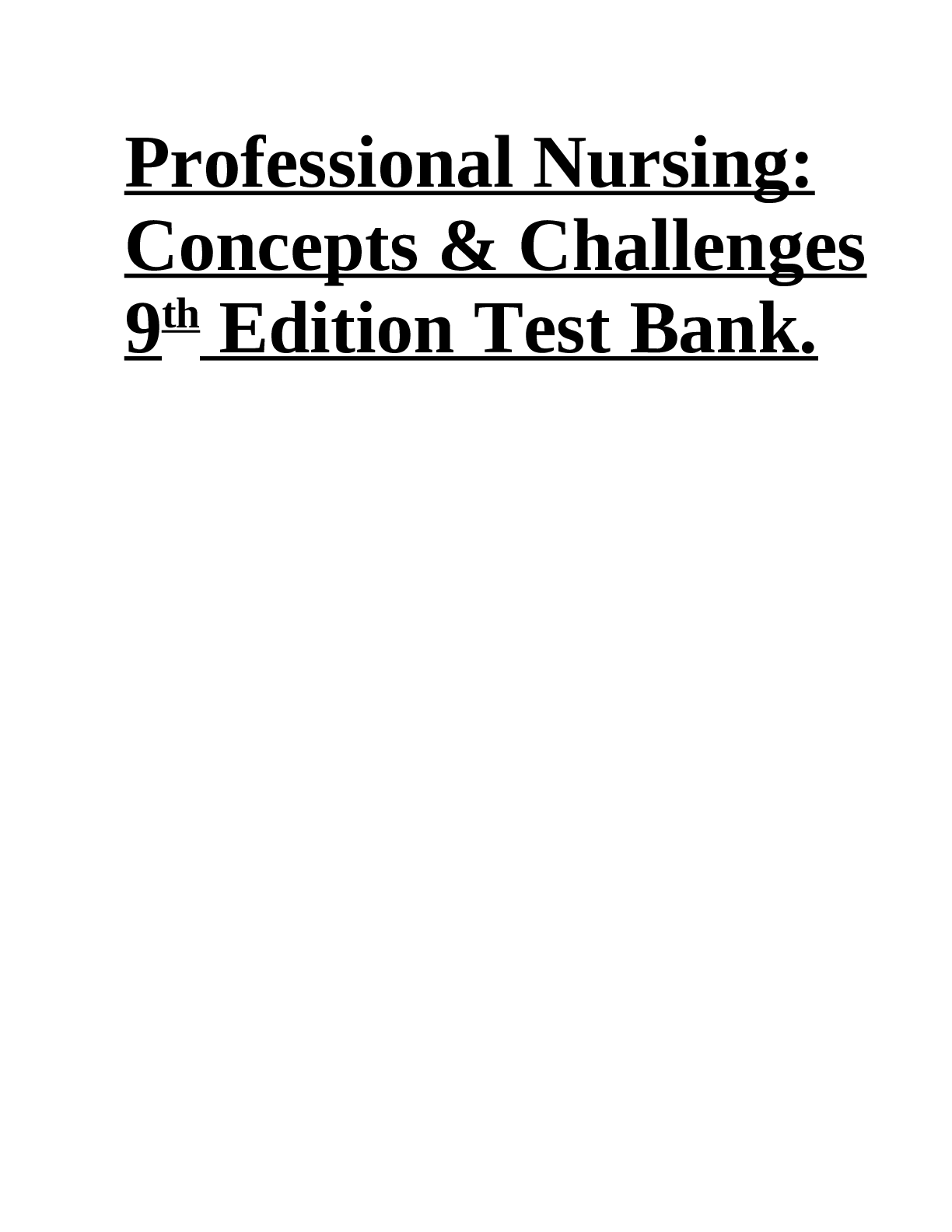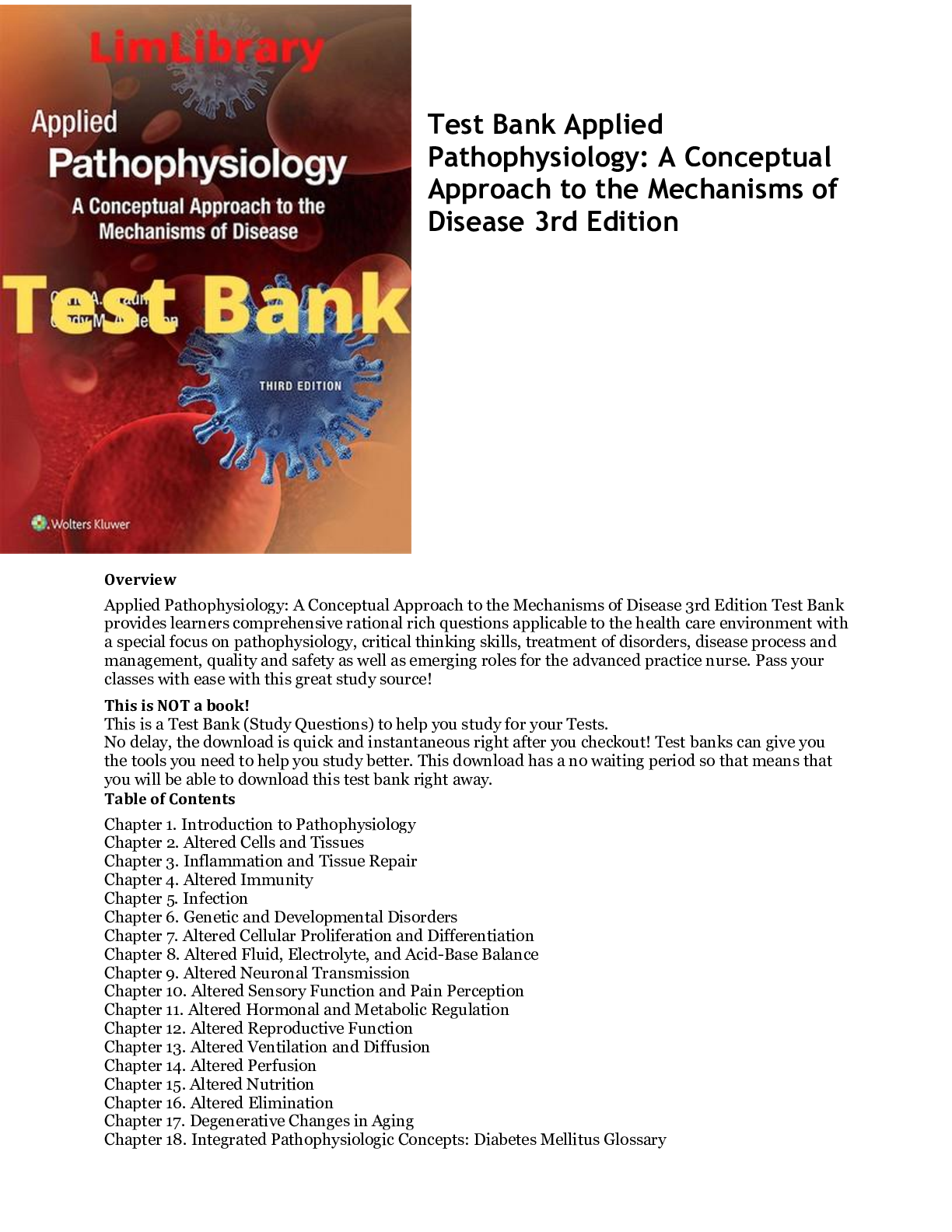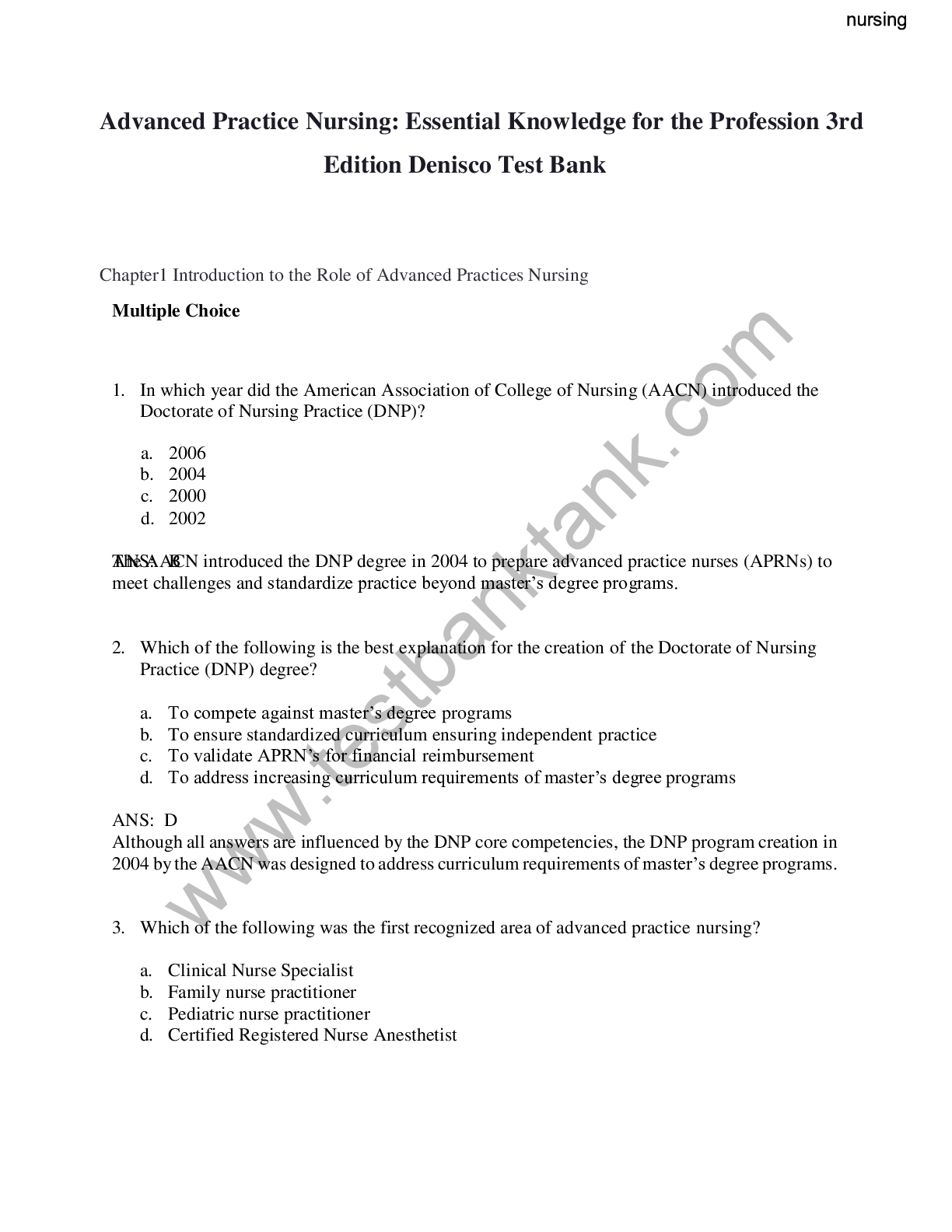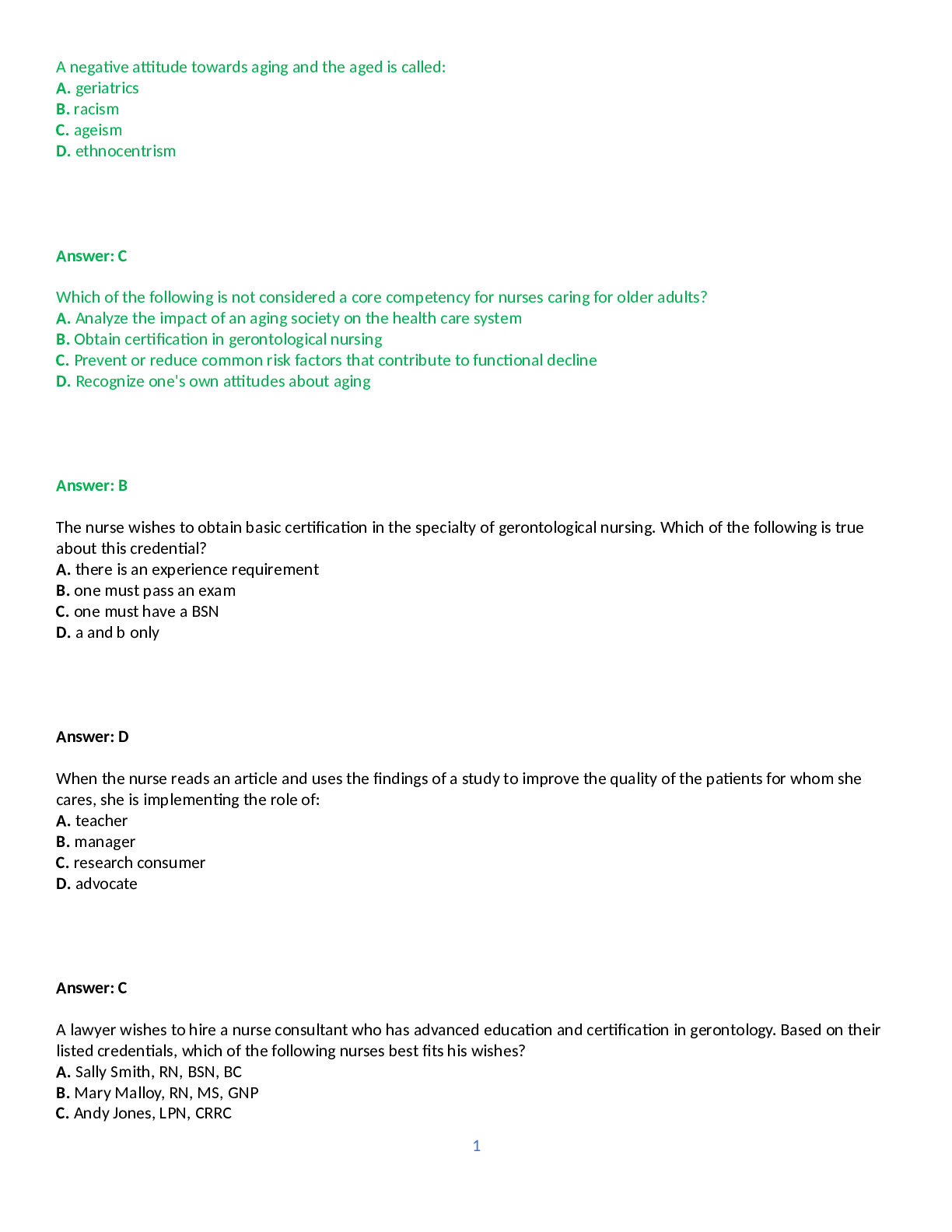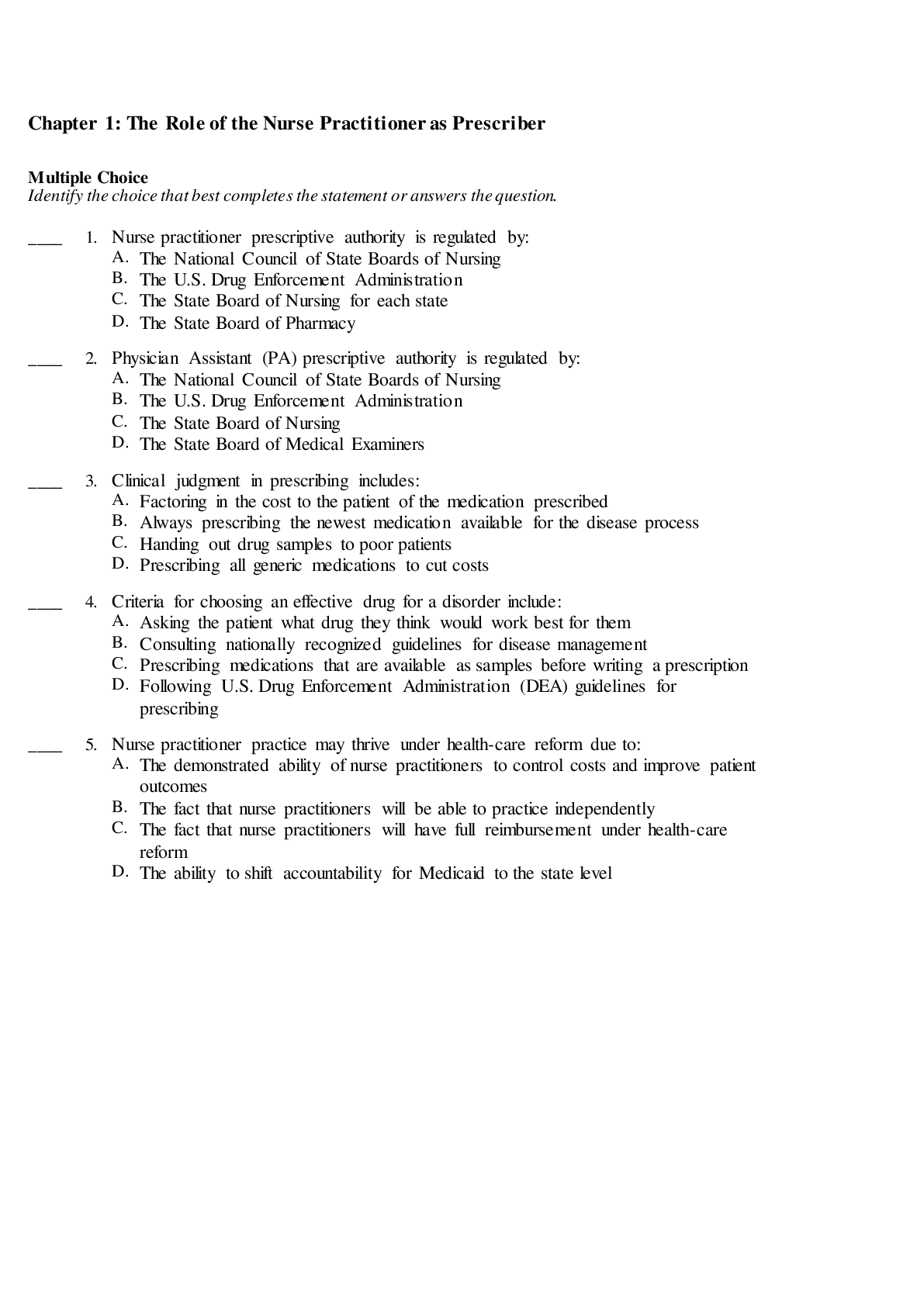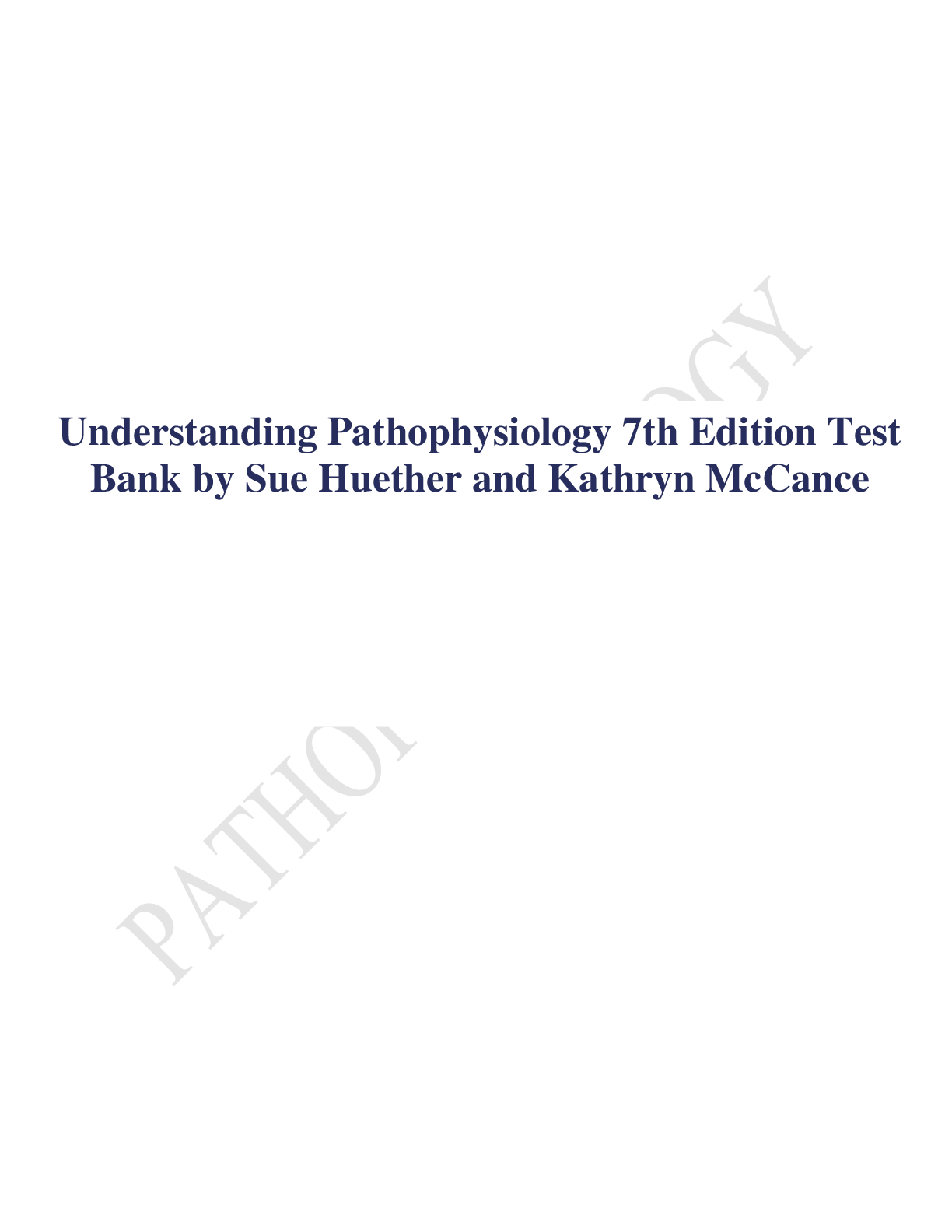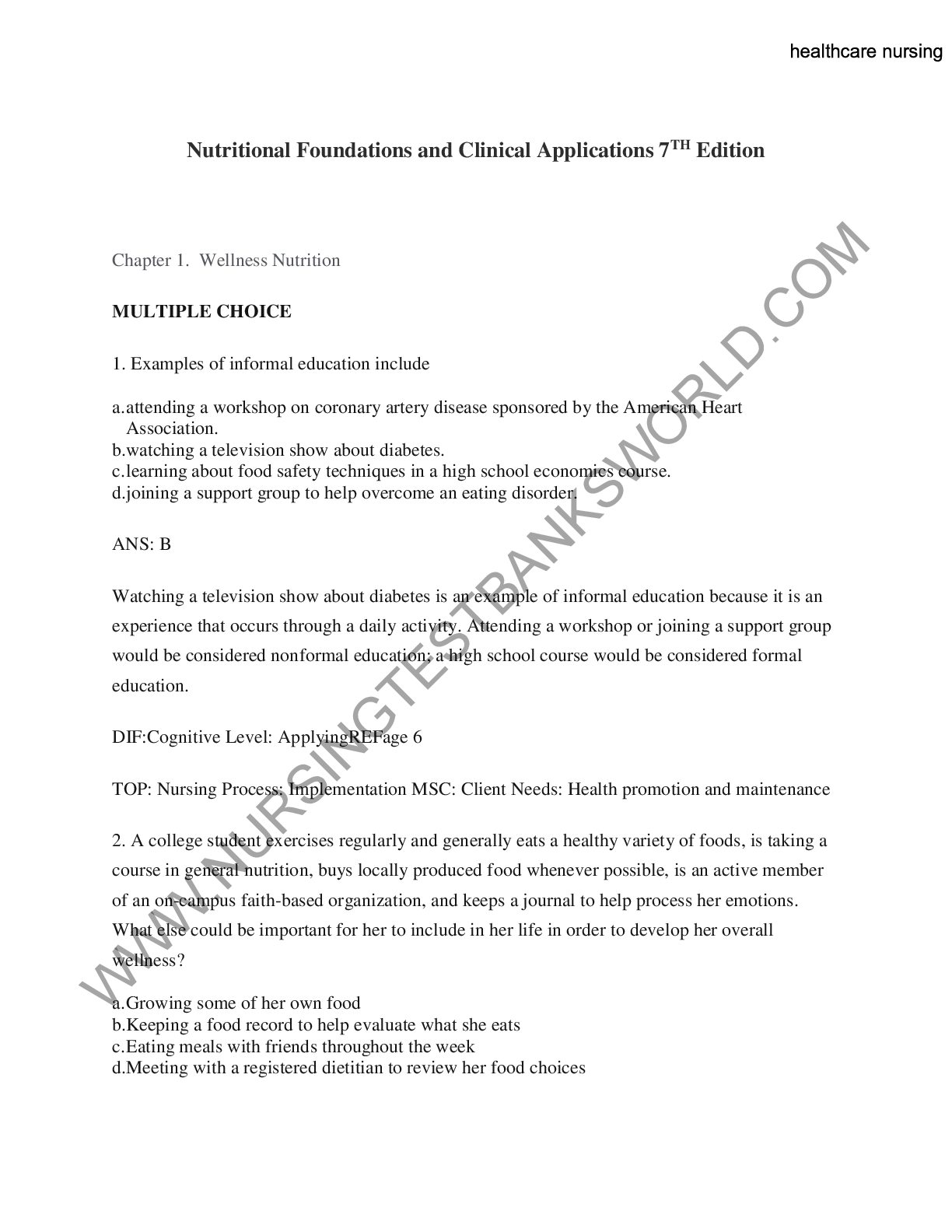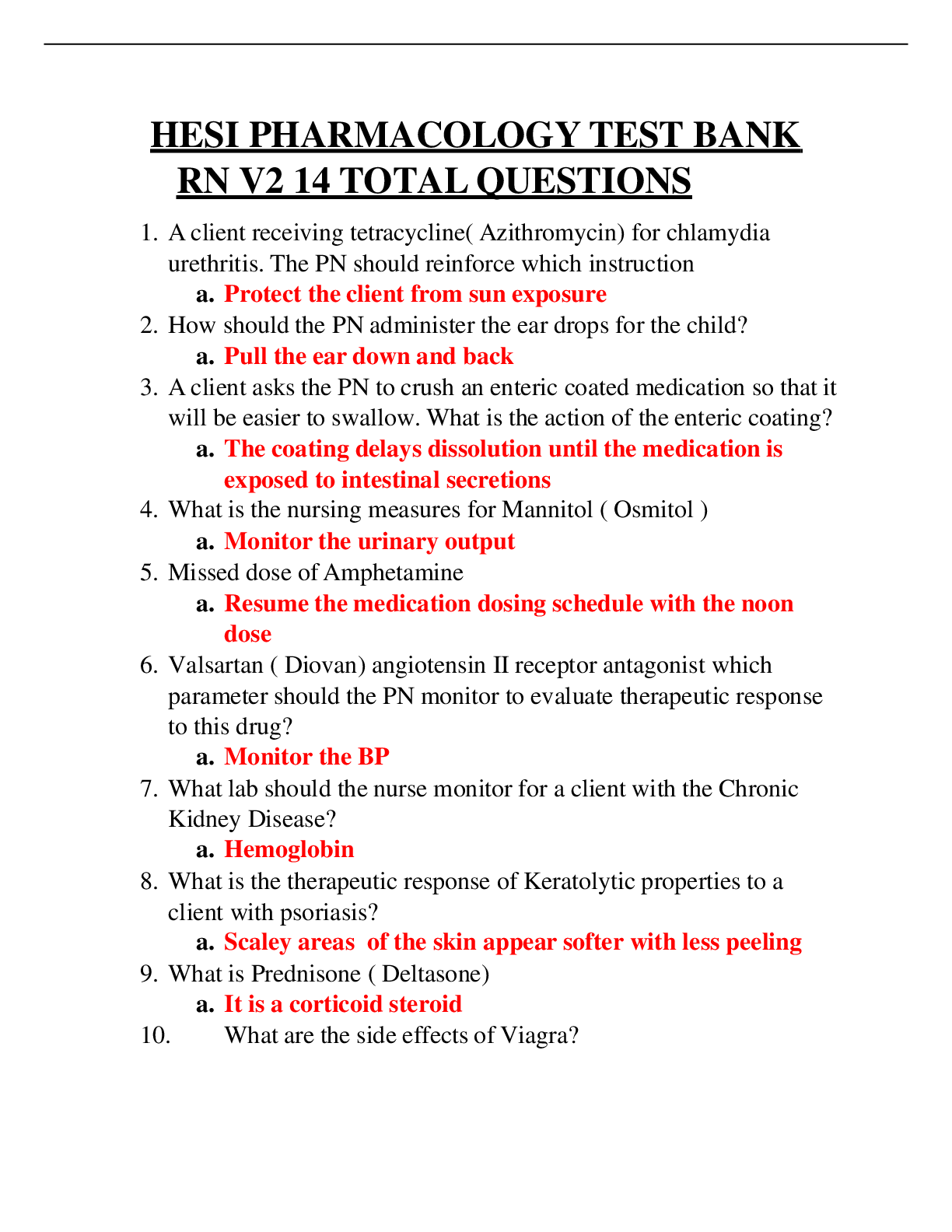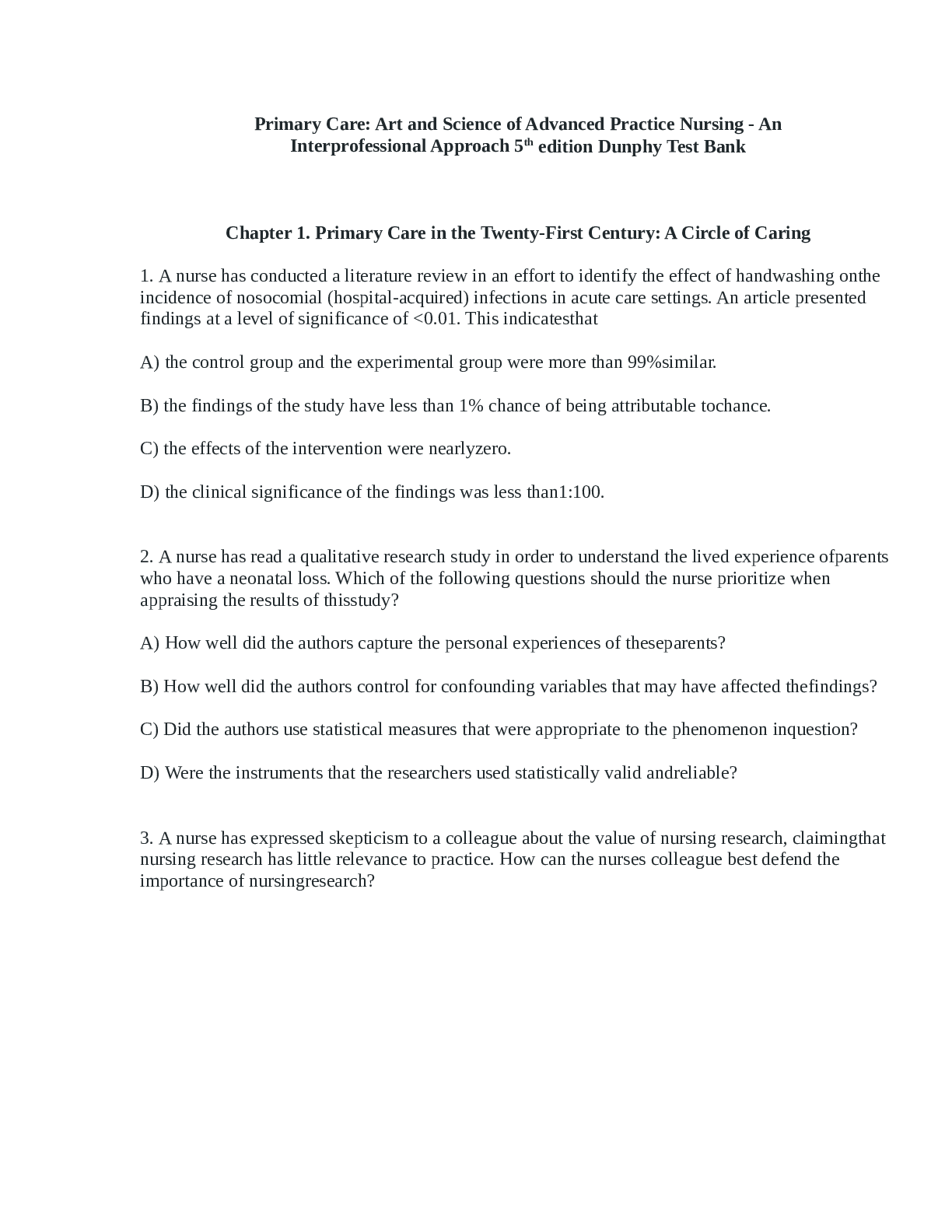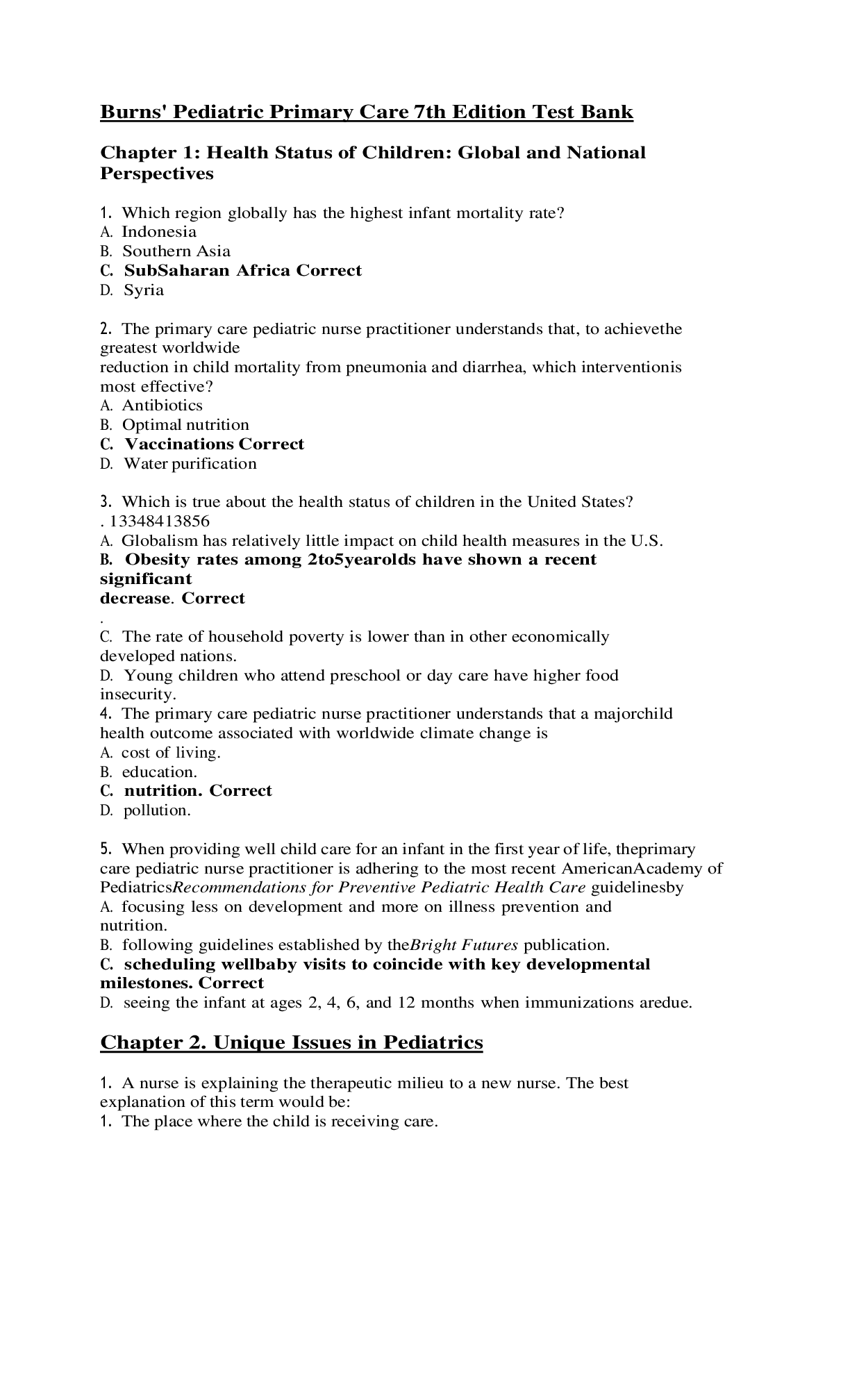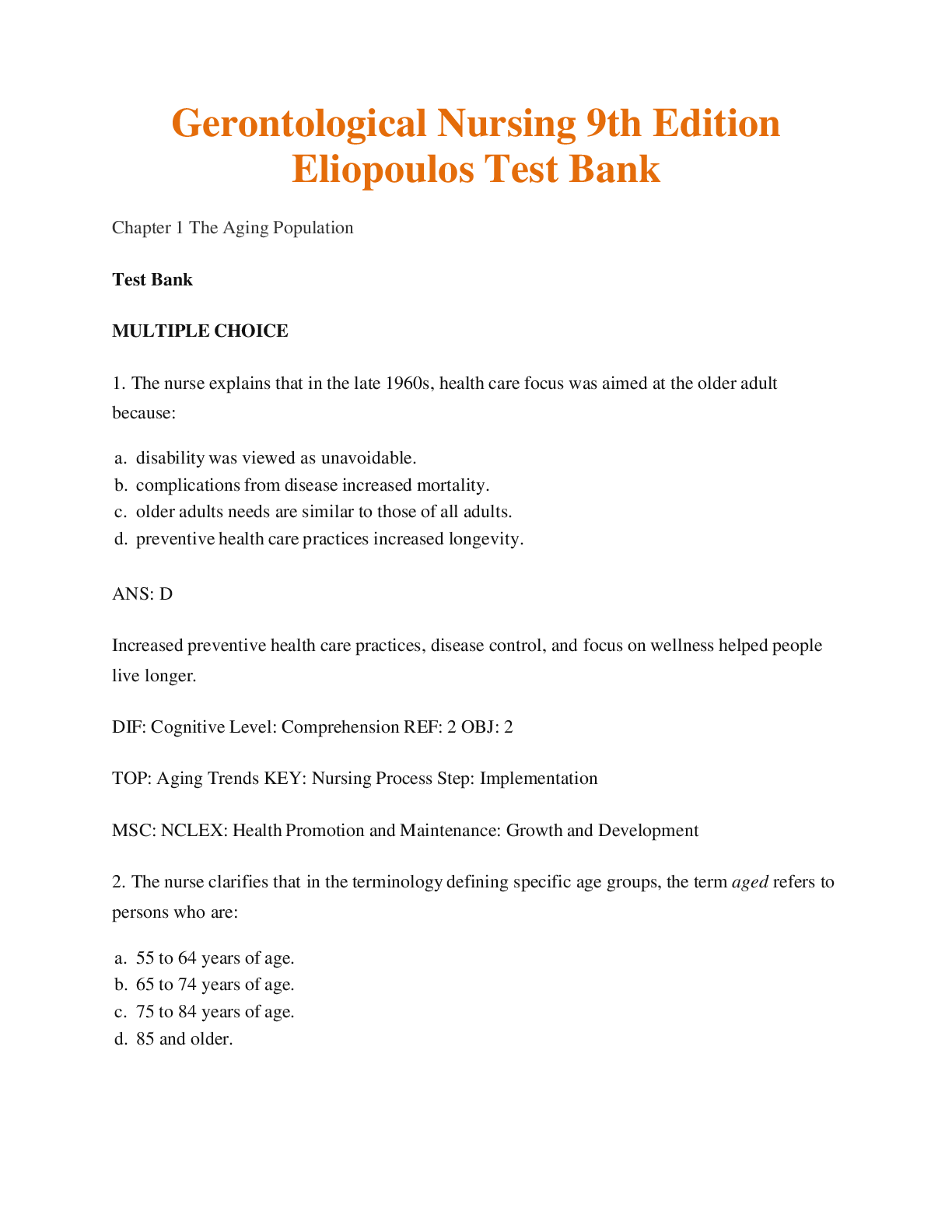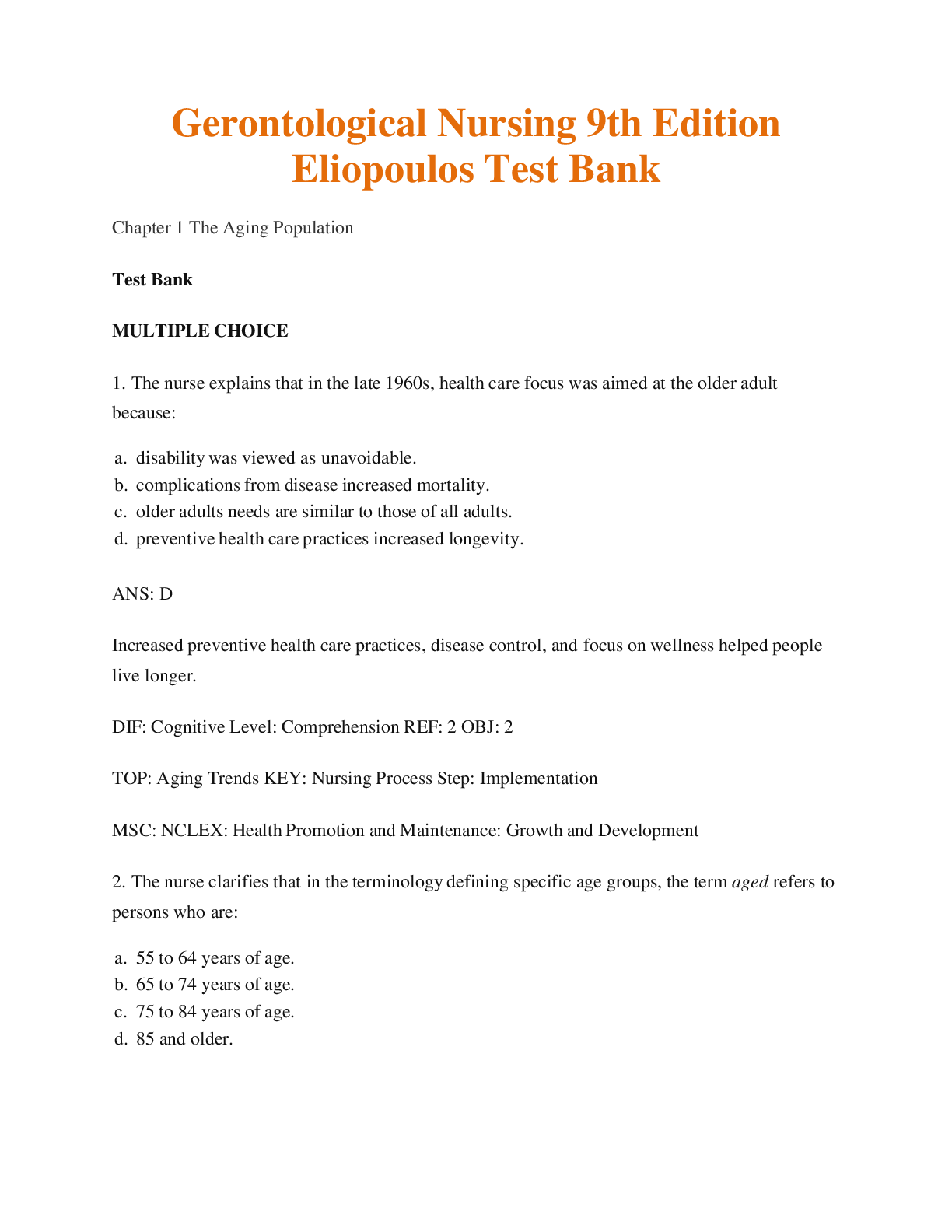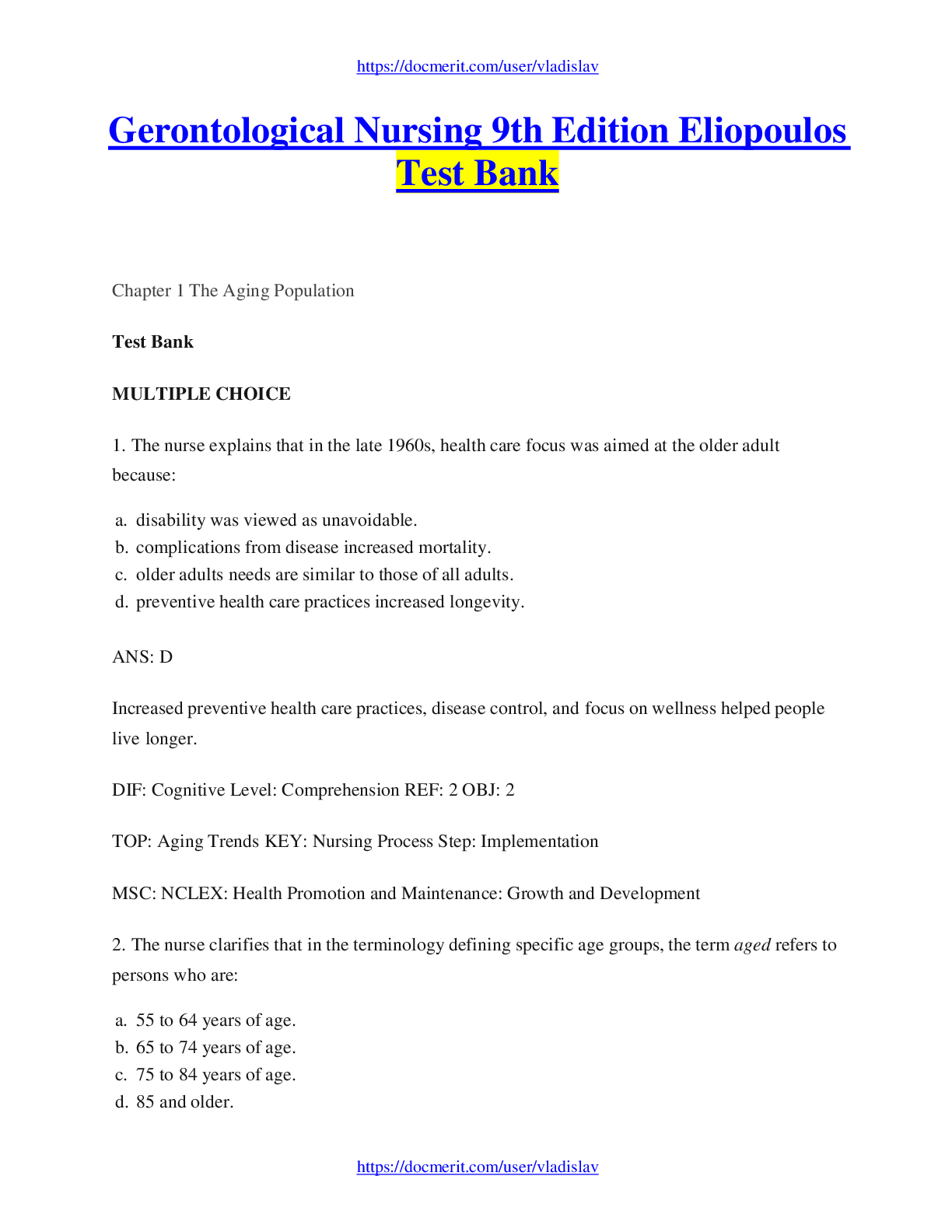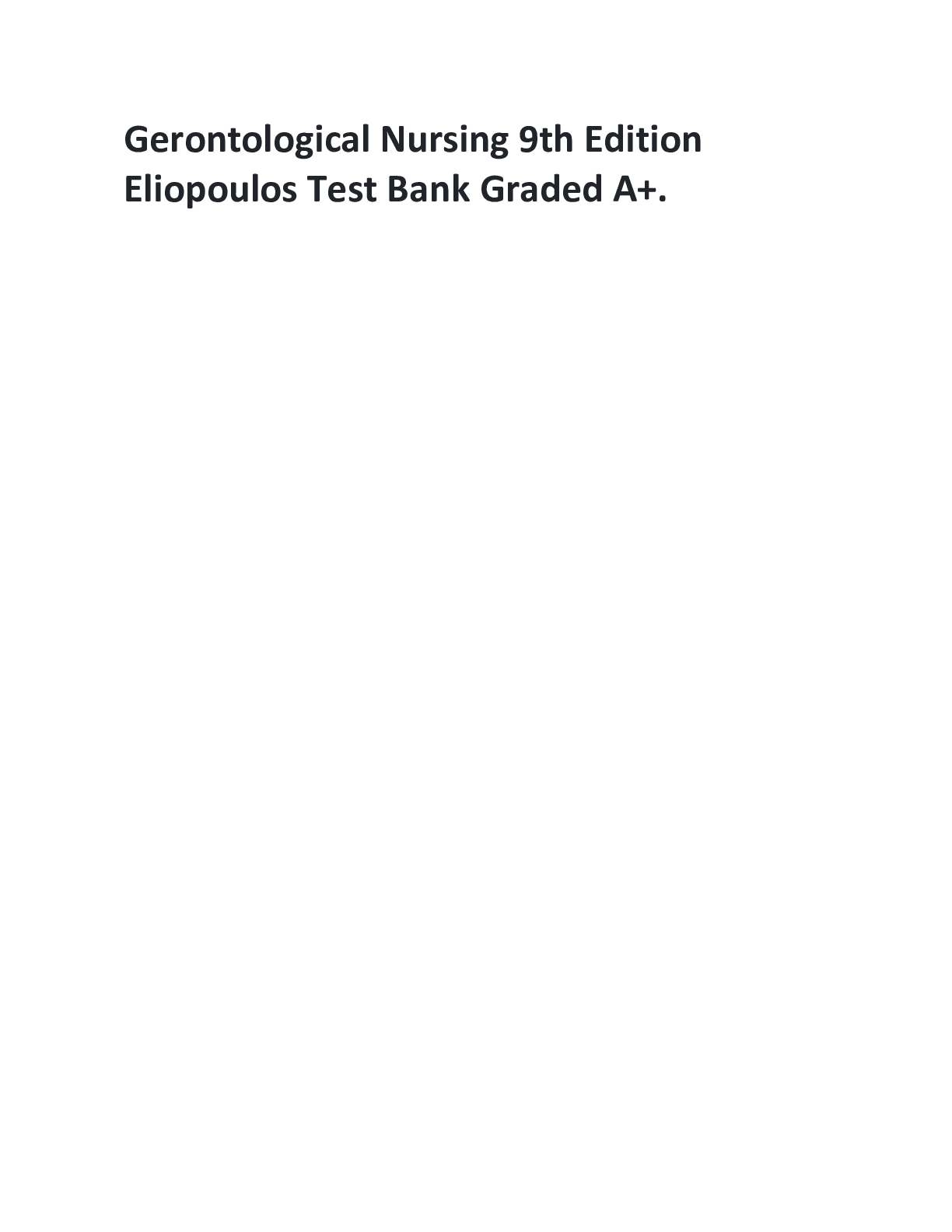Gerontological Nursing 9th Edition Eliopoulos Test Bank
Document Content and Description Below
MULTIPLE CHOICE 1. The nurse explains that in the late 1960s, health care focus was aimed at the older adult because: a. disability was viewed as unavoidable. b. complications from disease increase... d mortality. c. older adults needs are similar to those of all adults. d. preventive health care practices increased longevity. ANS: D Increased preventive health care practices, disease control, and focus on wellness helped people live longer. DIF: Cognitive Level: Comprehension REF: 2 OBJ: 2 TOP: Aging Trends KEY: Nursing Process Step: Implementation MSC: NCLEX: Health Promotion and Maintenance: Growth and Development 2. The nurse clarifies that in the terminology defining specific age groups, the term aged refers to persons who are: a. 55 to 64 years of age. b. 65 to 74 years of age. c. 75 to 84 years of age. d. 85 and older. ANS: C The term aged refers to persons who are 75 to 84 years of age. DIF: Cognitive Level: Comprehension REF: 2, Table 1-1 OBJ: 1 TOP: Age Categories KEY: Nursing Process Step: Implementation MSC: NCLEX: Health Promotion and Maintenance: Growth and Development 3. The nurse cautions that ageism is a mindset that influences persons to: a. discriminate against persons solely on the basis of age. b. fear aging. c. be culturally sensitive to concerns of aging. d. focus on resources for the older adult. ANS: A Ageism is a negative belief pattern that influences persons to discriminate against persons solely on the basis of age and can lead to destructive behaviors toward the older adult. DIF: Cognitive Level: Comprehension REF: 5 OBJ: 3 TOP: Ageism KEY: Nursing Process Step: Implementation MSC: NCLEX: Psychosocial Integrity: Psychosocial Adaptation 4. The nurse points out that the most beneficial legislation that has influenced health care for the older adult is: a. Medicare and Medicaid. b. elimination of the mandatory retirement age. c. the Americans with Disabilities Act. d. the Drug Benefit Program. ANS: A The broadest sweeping legislation beneficial to the older adult is Medicare and Medicaid. DIF: Cognitive Level: Application REF: 16 OBJ: 6 TOP: Legislation KEY: Nursing Process Step: Implementation MSC: NCLEX: N/A 5. The nurse clarifies that a housing option for the older adult that offers the privacy of an apartment with restaurant-style meals and some medical and personal care services is the: a. government-subsidized housing. b. long-term care facility. c. assisted-living center. d. group housing plan. ANS: C Assisted-living arrangements offer the privacy of an apartment or condominium with meals prepared and served, limited medical care, and a variety of personal services. DIF: Cognitive Level: Application REF: 14 OBJ: 9 TOP: Housing Options KEY: Nursing Process Step: Implementation MSC: NCLEX: Physiological Integrity: Physiological Adaptation 6. The 75-year-old man who has been hospitalized following a severe case of pneumonia is concerned about his mounting hospital bill and asks if his Medicare coverage will pay for his care. The nurses most helpful response is Yes. Medicare: a. pays 100% of all medical costs for persons older than 65. b. Part B pays hospital costs and physician fees. c. Part A pays for inpatient hospital costs. d. Part D pays 80% of the charges made by physicians. ANS: C Medicare Part A pays inpatient hospital costs, Part B pays 80% of physicians charges, and Part D helps defray prescription drug costs. DIF: Cognitive Level: Application REF: 16 OBJ: 6 TOP: Medicare Provisions KEY: Nursing Process Step: Implementation MSC: NCLEX: Psychosocial Integrity: Coping and Adaptation 7. The daughter of a patient who has been diagnosed with terminal cancer asks which documents are required to allow her to make health care decisions for her parent. The nurses most informative response is: a. Advance directives indicate the degree of intervention desired by the patient. b. A Do Not Resuscitate document signed by the patient transfers authority to the next of kin. c. A durable power of attorney for health care transfers decision-making authority for health care to a designated person. d. A living will transfers authority to the physician. ANS: C A durable power of attorney for health care transfers the authority for decision making to a designated person. DIF: Cognitive Level: Application REF: 19 OBJ: 11 TOP: Advance Directives KEY: Nursing Process Step: Implementation MSC: NCLEX: Psychosocial Integrity: Coping and Adaptation 8. The daughter of a resident in a long-term care facility is frustrated with her 80-year-old mothers refusal to eat. The nurse explains that the refusal to eat is a behavior that is an: a. effort to maintain a portion of independence and self direction. b. indication of approaching Alzheimer disease. c. effort to gain attention. .........................................CONTINUED [Show More]
Last updated: 11 months ago
Preview 1 out of 460 pages
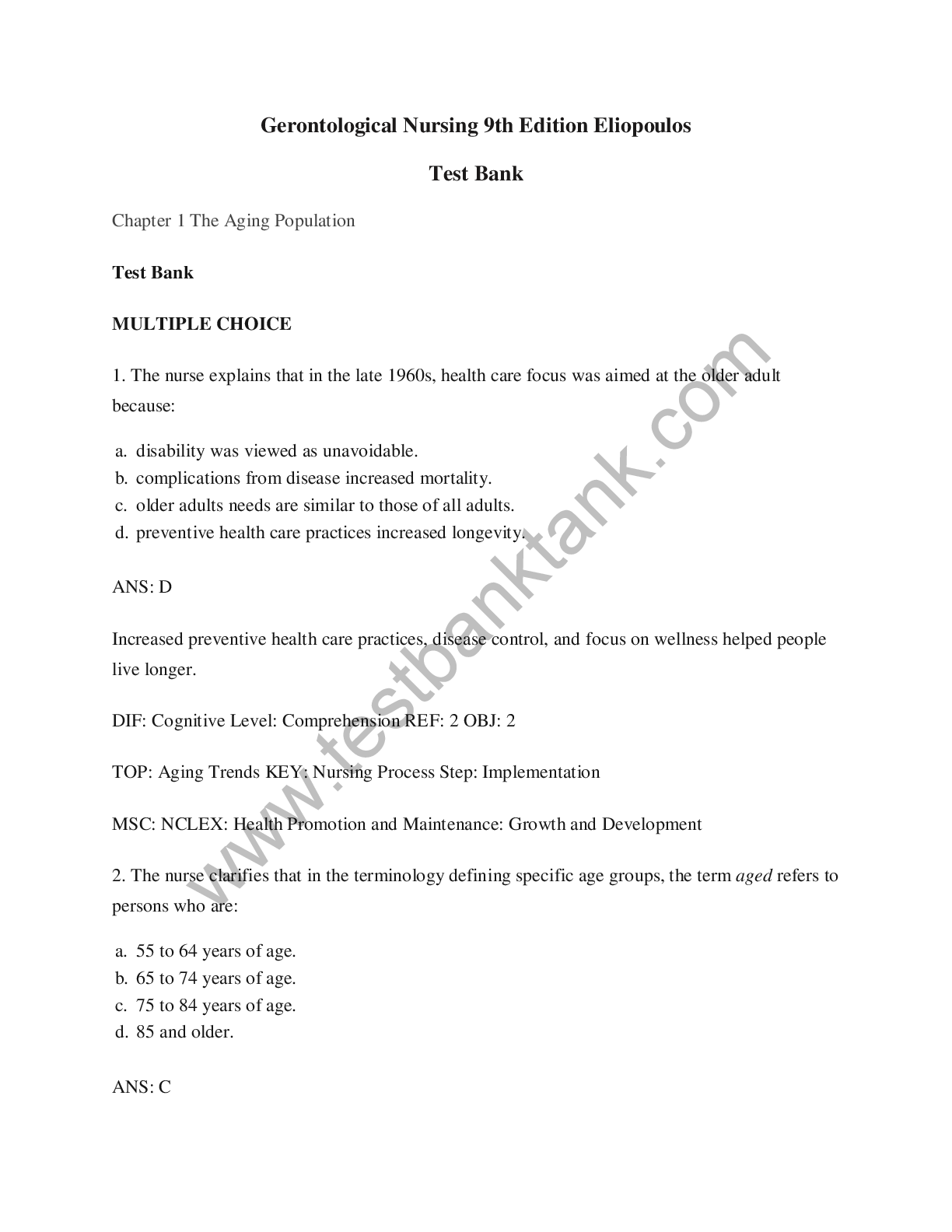
Reviews( 0 )
Document information
Connected school, study & course
About the document
Uploaded On
Oct 17, 2021
Number of pages
460
Written in
Additional information
This document has been written for:
Uploaded
Oct 17, 2021
Downloads
0
Views
28

